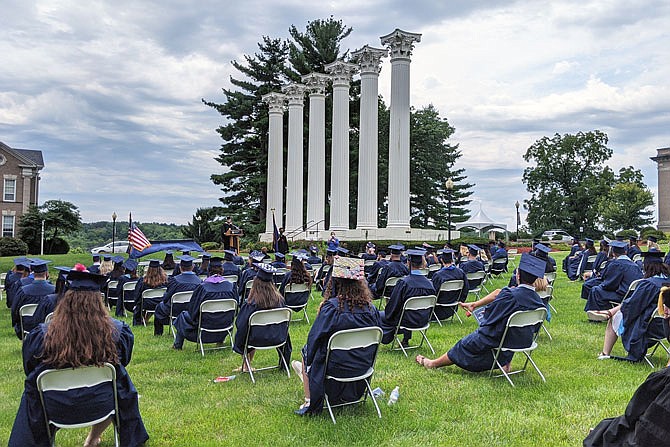Actions taken last year to revamp Westminster College's finances may have saved headaches this year, the college's interim president said.
Donald Lofe, Westminster's chief transformation officer and interim president, spoke to the Fulton Rotary Club during its virtual meeting Wednesday. He's a 1979 Westminster graduate and chair of its board of trustees, and he took his current position in July.
"Little did I know in 1979 that I'd be stepping back into something like this," he said.
Westminster has been in trouble in the last few years, Lofe said, with a shrinking enrollment and thus a shrinking income.
"Even prior to COVID-19, like many smaller institutions in the country, we've had similar issues and similar problems," he said. "I'd be disingenuous to say we didn't have issues we had to deal with."
In around June of last year, the board and college administrators began a serious revamp of the college's financial, operational and academic aspects.
"Without that, we believe we would've been highly challenged in opening the school up," Lofe said.
He said the college built out its liquidity plan, creating a month-by-month financial plan for the next three years. The process didn't just involve finding savings, Lofe said.
"We've cut, over the last three years, about $3.5 million," he said. "We have to start making some investments back into institution, and that's what fiscal year 2021 is for."
Westminster also took a close look at its course offerings, eliminating several underutilized minors and majors. They eyed operational expenditures.
'We need to get a handle on maintenance issues," Lofe said.
Lastly, the college upped spending on attracting students.
"We invested approximately $1 million in enrollment and admission research and technology," Lofe said.
One big thing the college learned: Brochures work.
"We'd quit doing mailings," Lofe said. "What the research shows is parents, kids want to get a piece of paper. They want to see a glossy brochure. We saved money but probably hurt ourselves in the end. We restarted that this year."
Westminster started mailing out brochures again, and between that and other recruitment measures, the college welcomed 220 new freshmen and transfer students for the 2020-21 school year. That's well ahead of the college's projections, Lofe said.
Lofe, who plans to stay at the college for at least two years, is in the midst of formulating a five-year strategic plan to be presented to the board in June 2021.
The plan addresses the college's overall capital and financial structure, capital expenditure needs (such as deferred maintenance and unfinished projects), the National Churchill Museum (which Lofe described as a "big asset" for the school) and building a "diverse and (inclusive) culture" at the college, he said.
"We have started some projects and left them incomplete or put them on hold for the right reasons (including the football stadium)," Lofe said. "Our goal is to begin building out the remaining portion of the stadium in late '21."
In addition to hiring external consultants, Lofe and other college leaders have been seeking advice from other similarly sized institutions, he said.
Finances are only one part of the college's challenges - the ongoing COVID-19 pandemic has forced on-the-fly strategizing and planning. For more about how Westminster College plans to keep students safe, tap here. To watch Lofe's full talk, tap here.
"We can't control everything, but we can be as prepared as possible," Lofe said.

